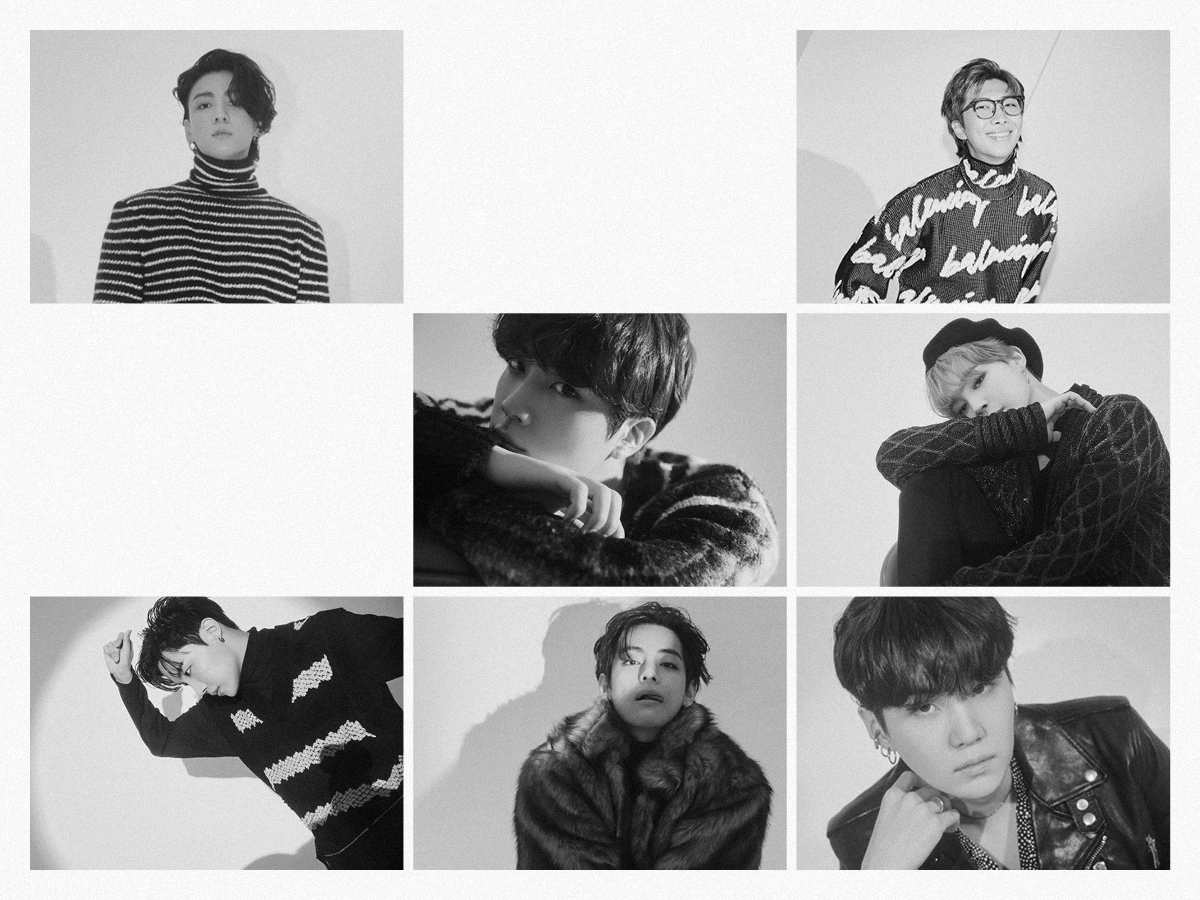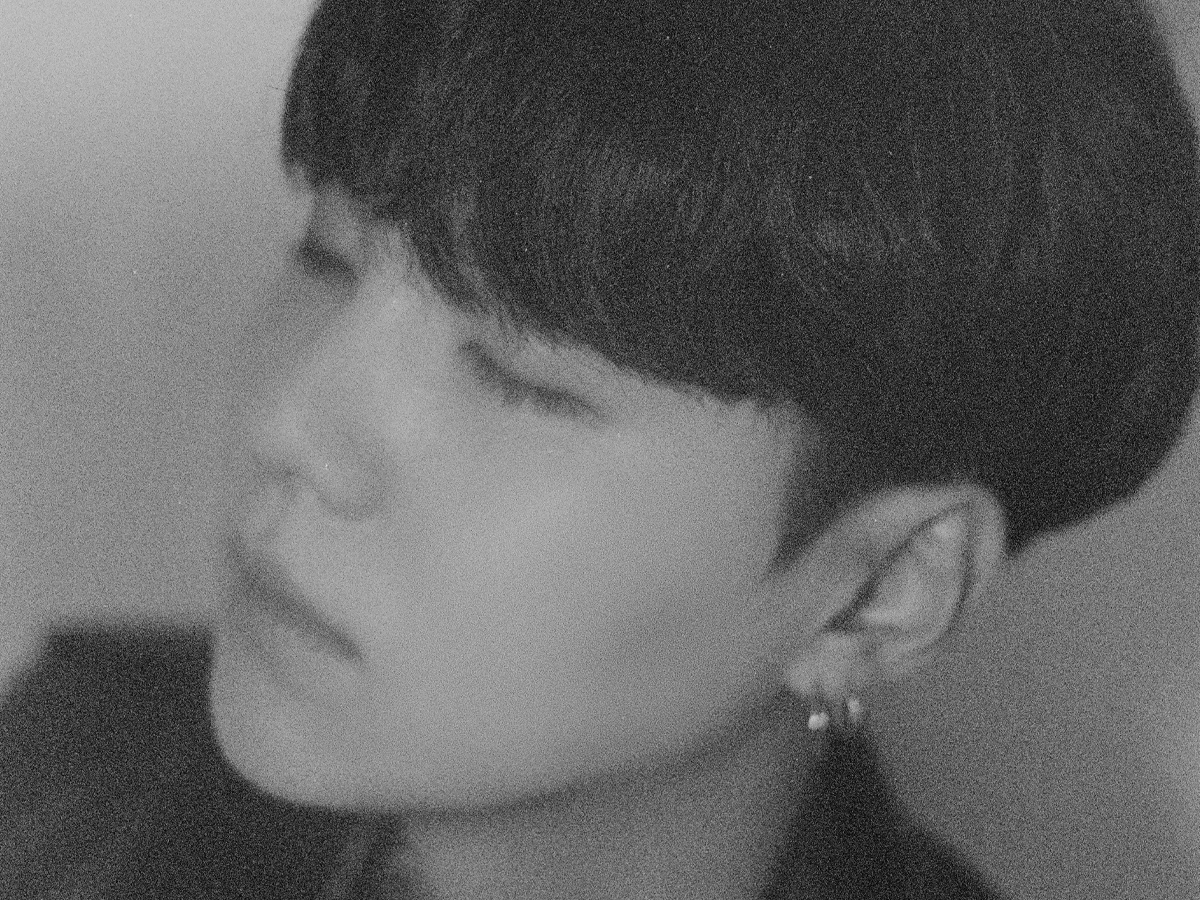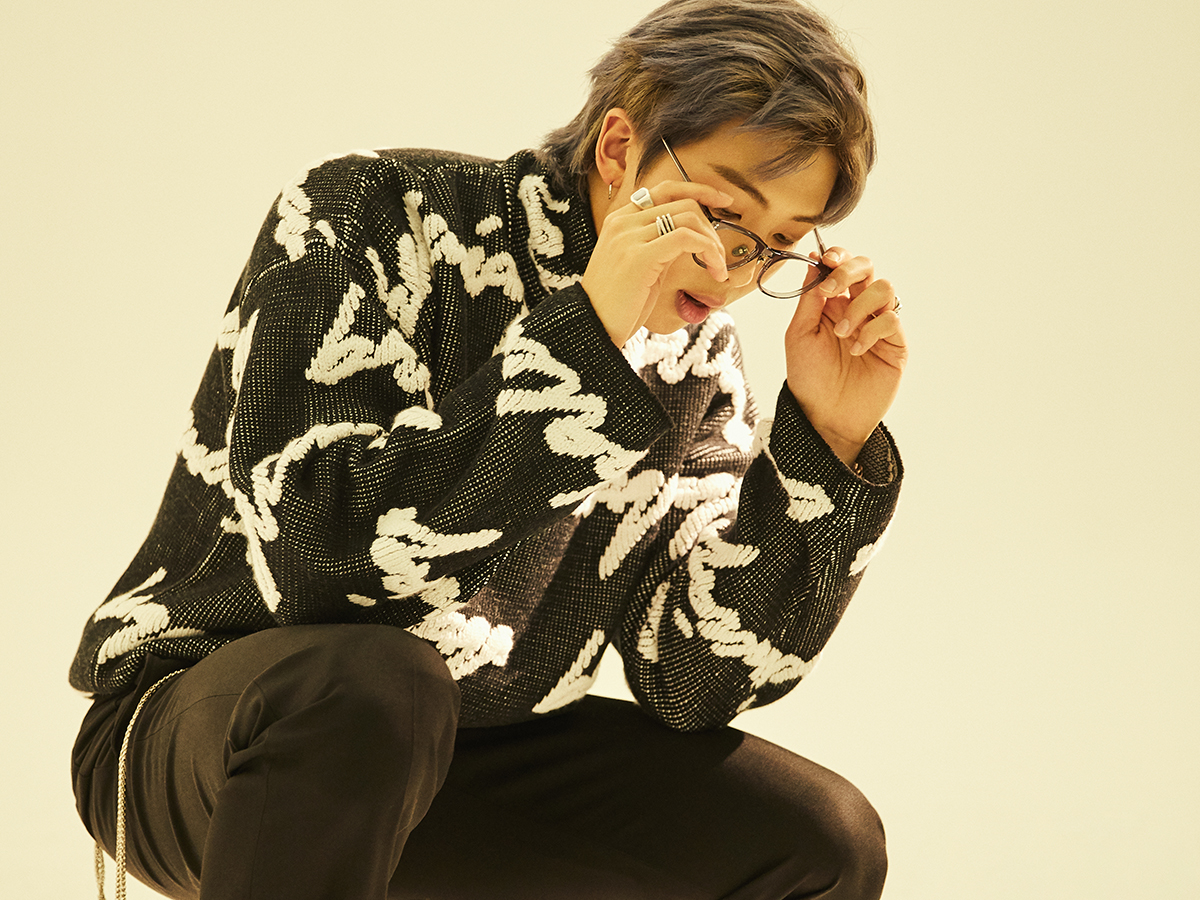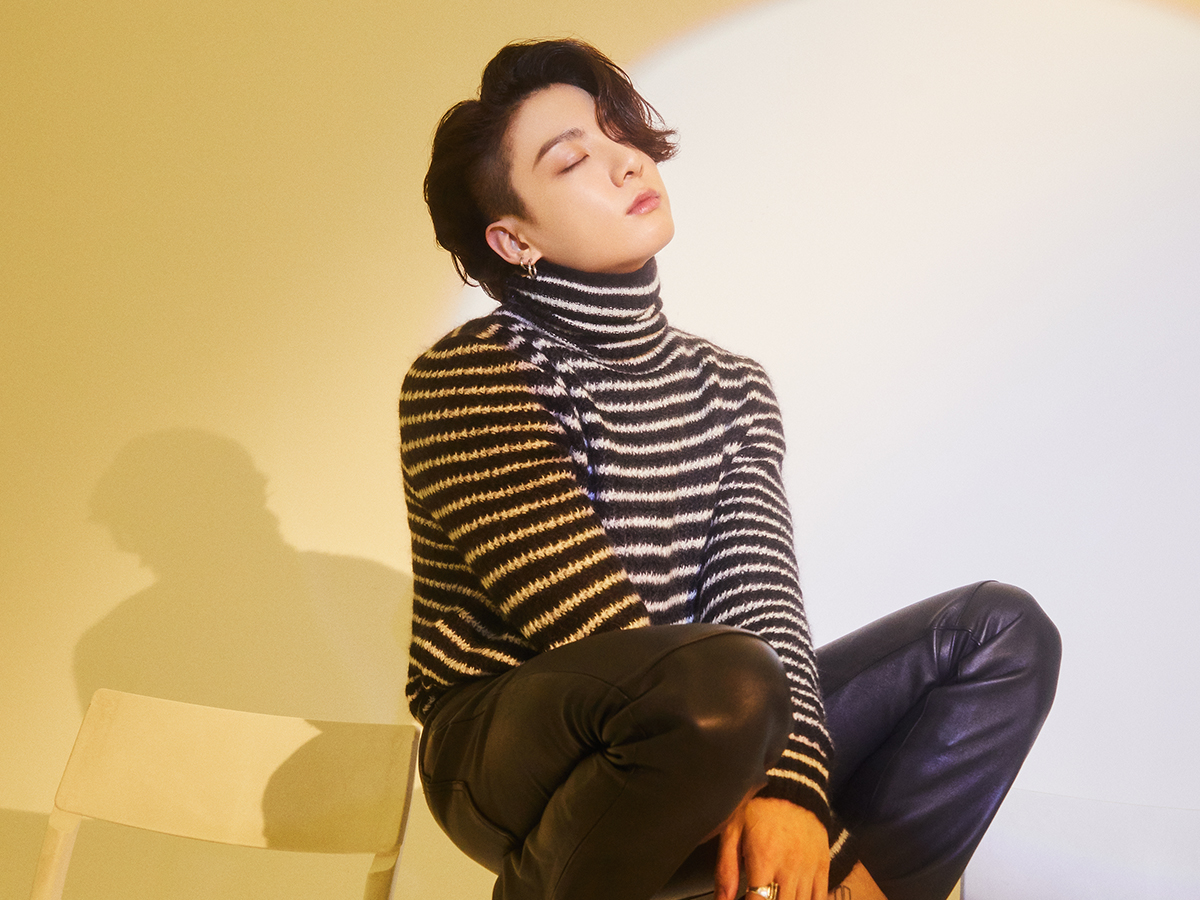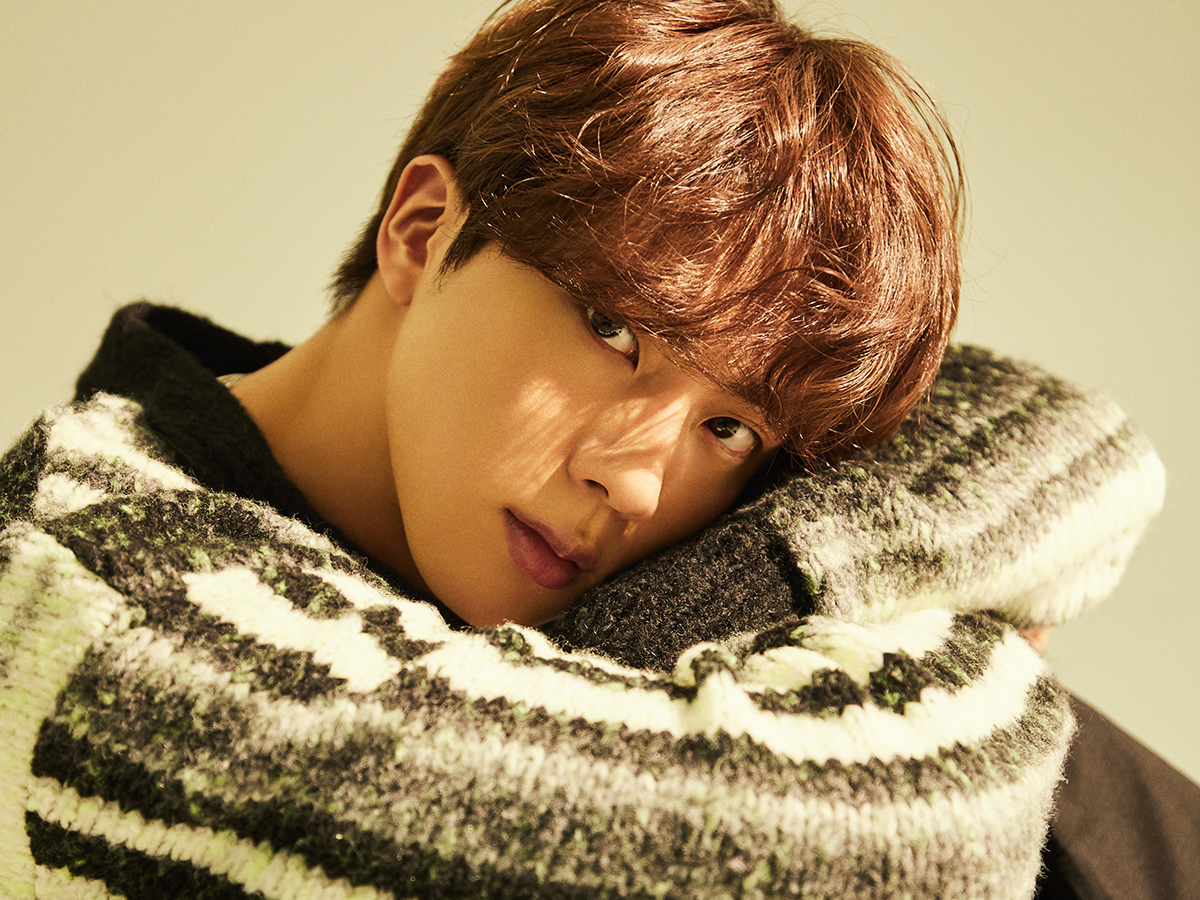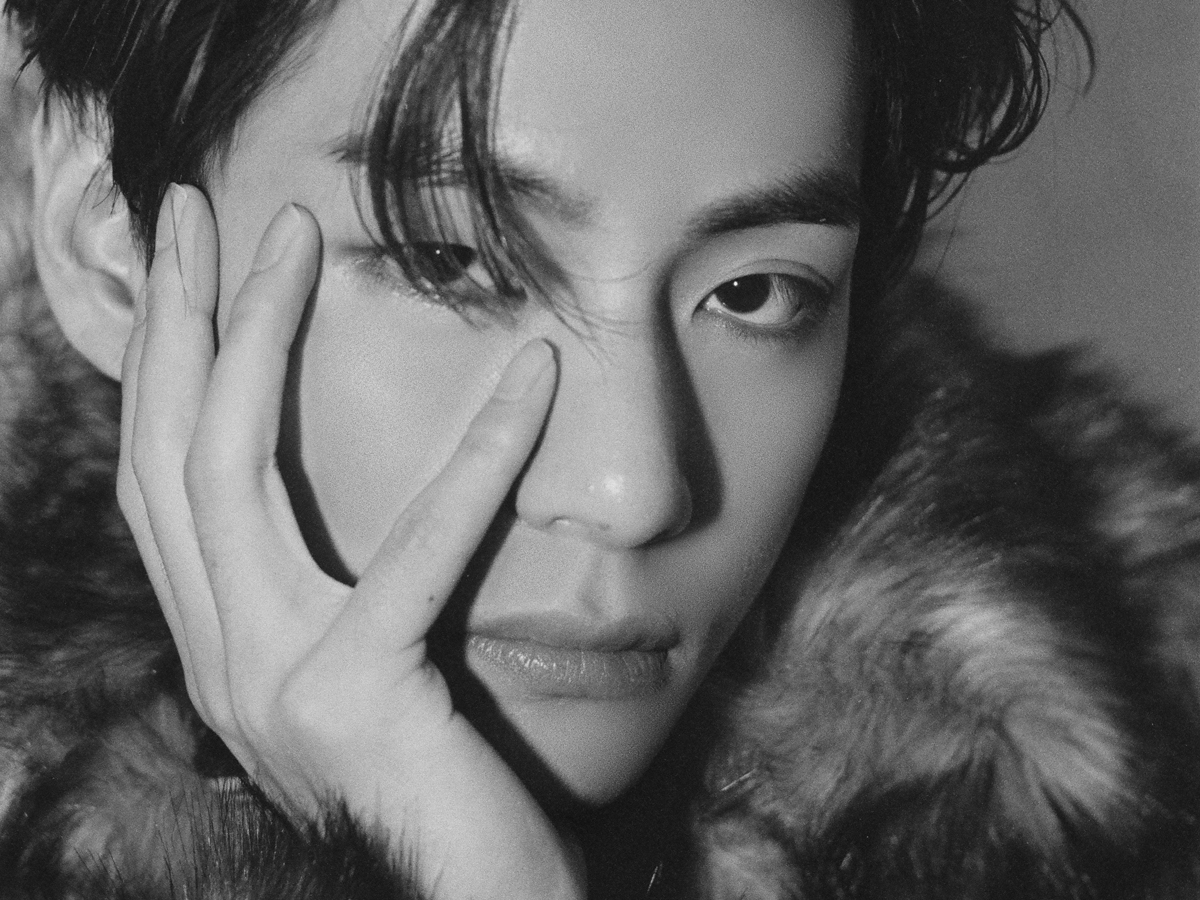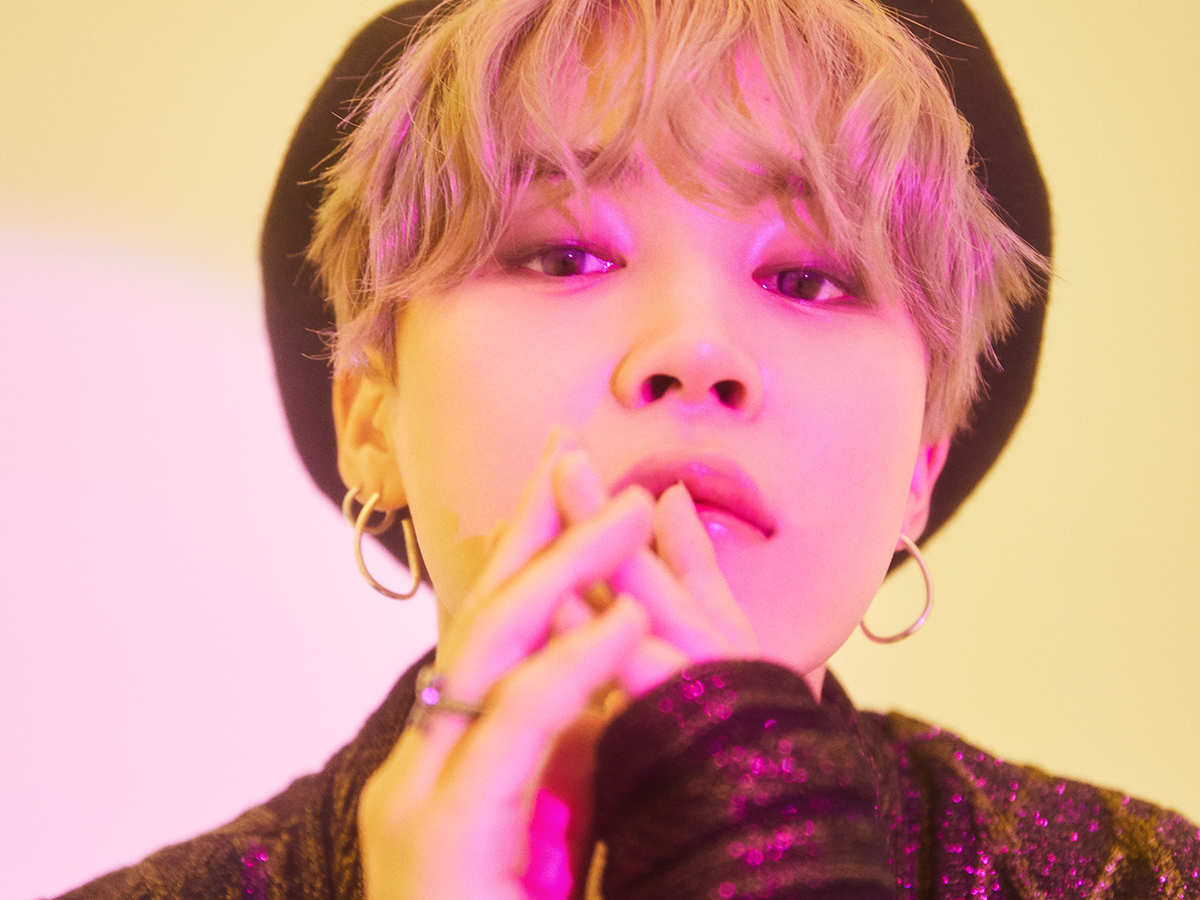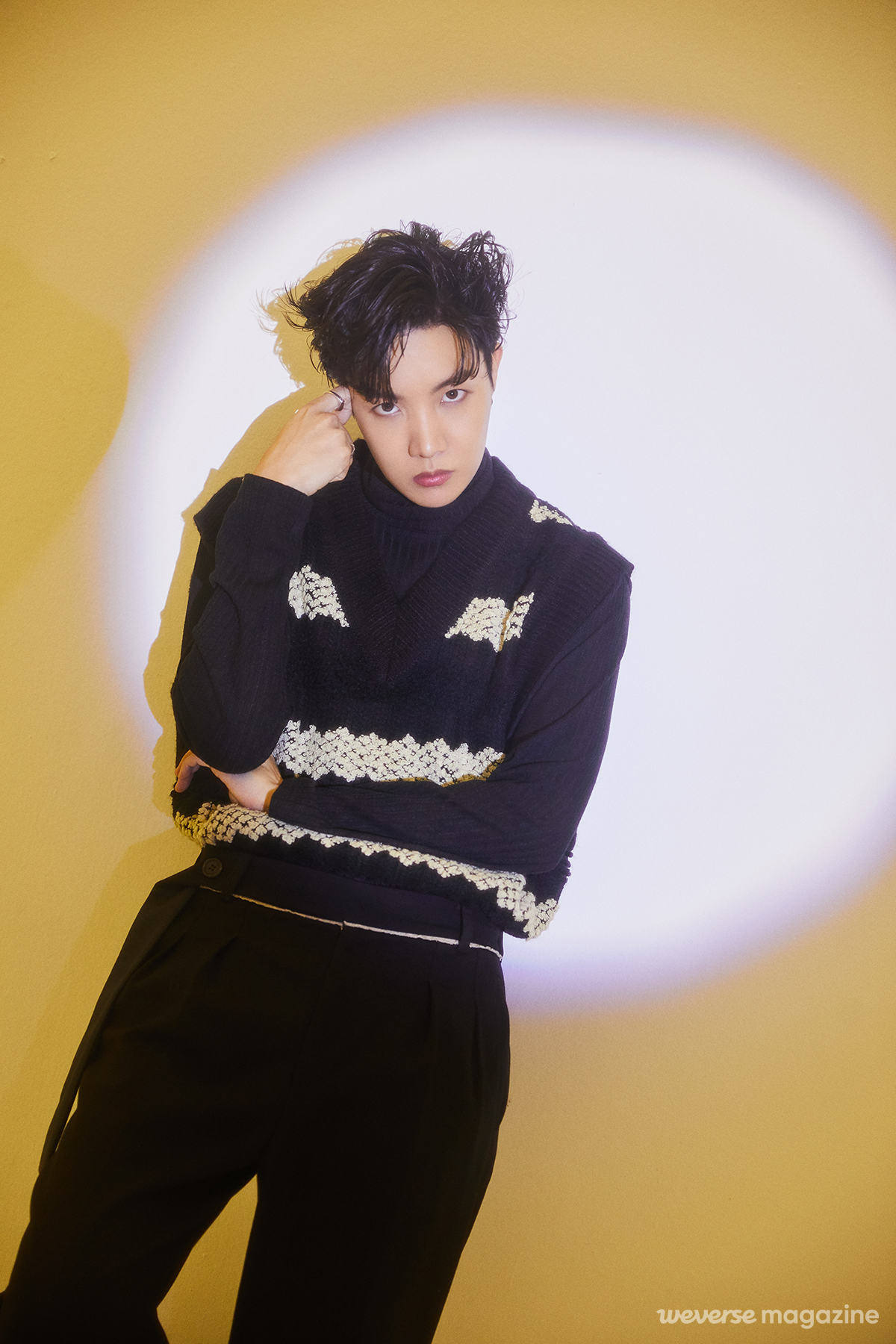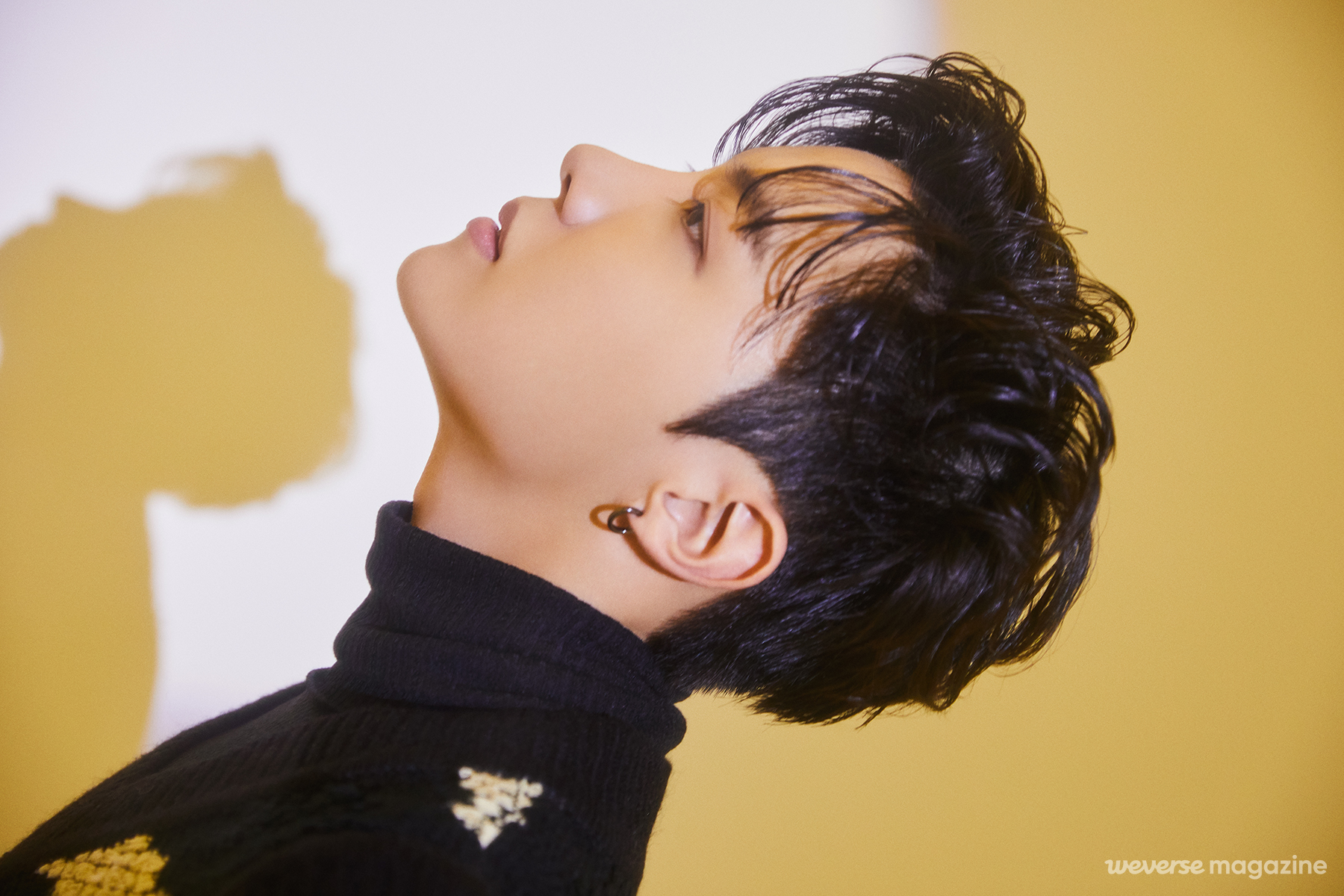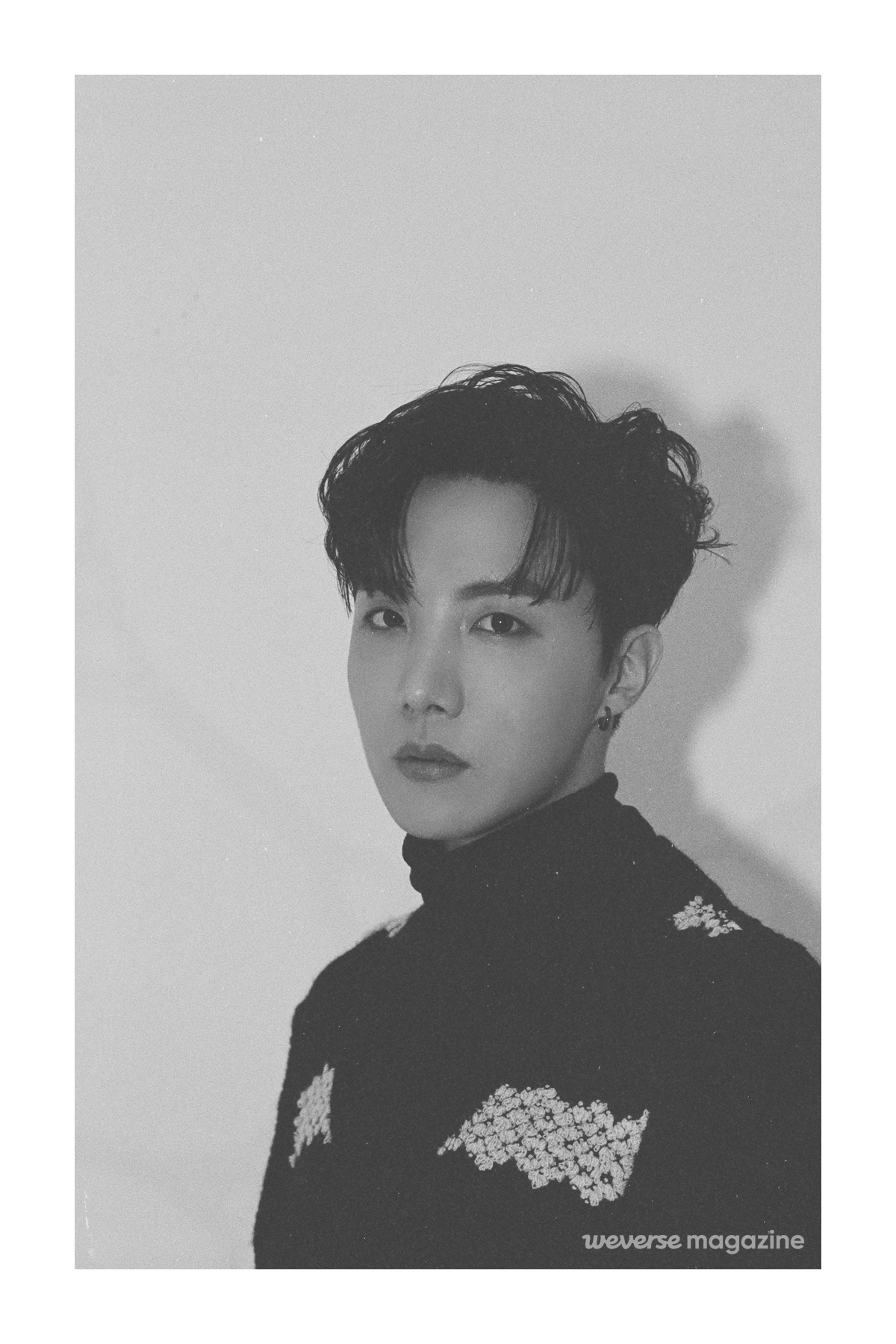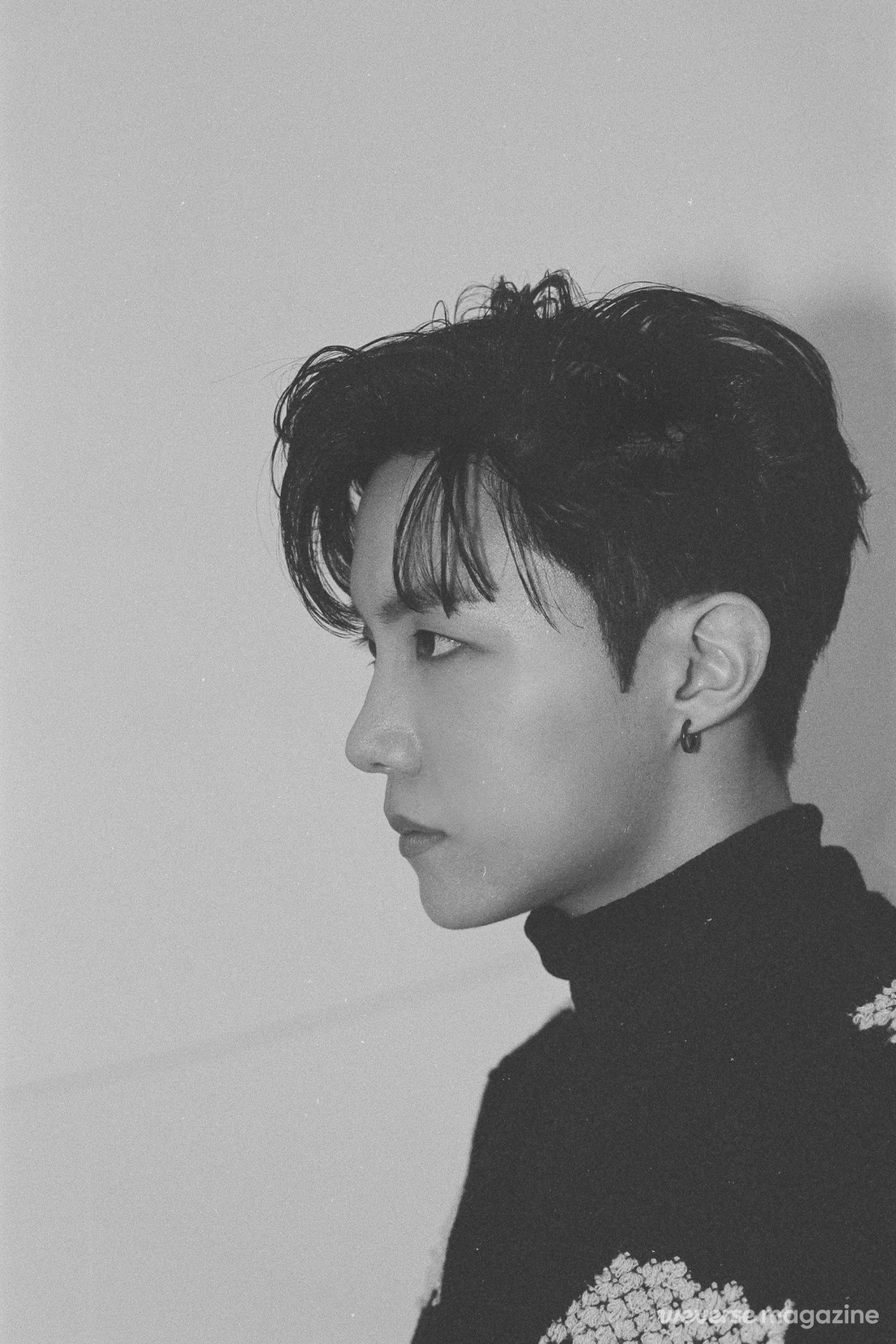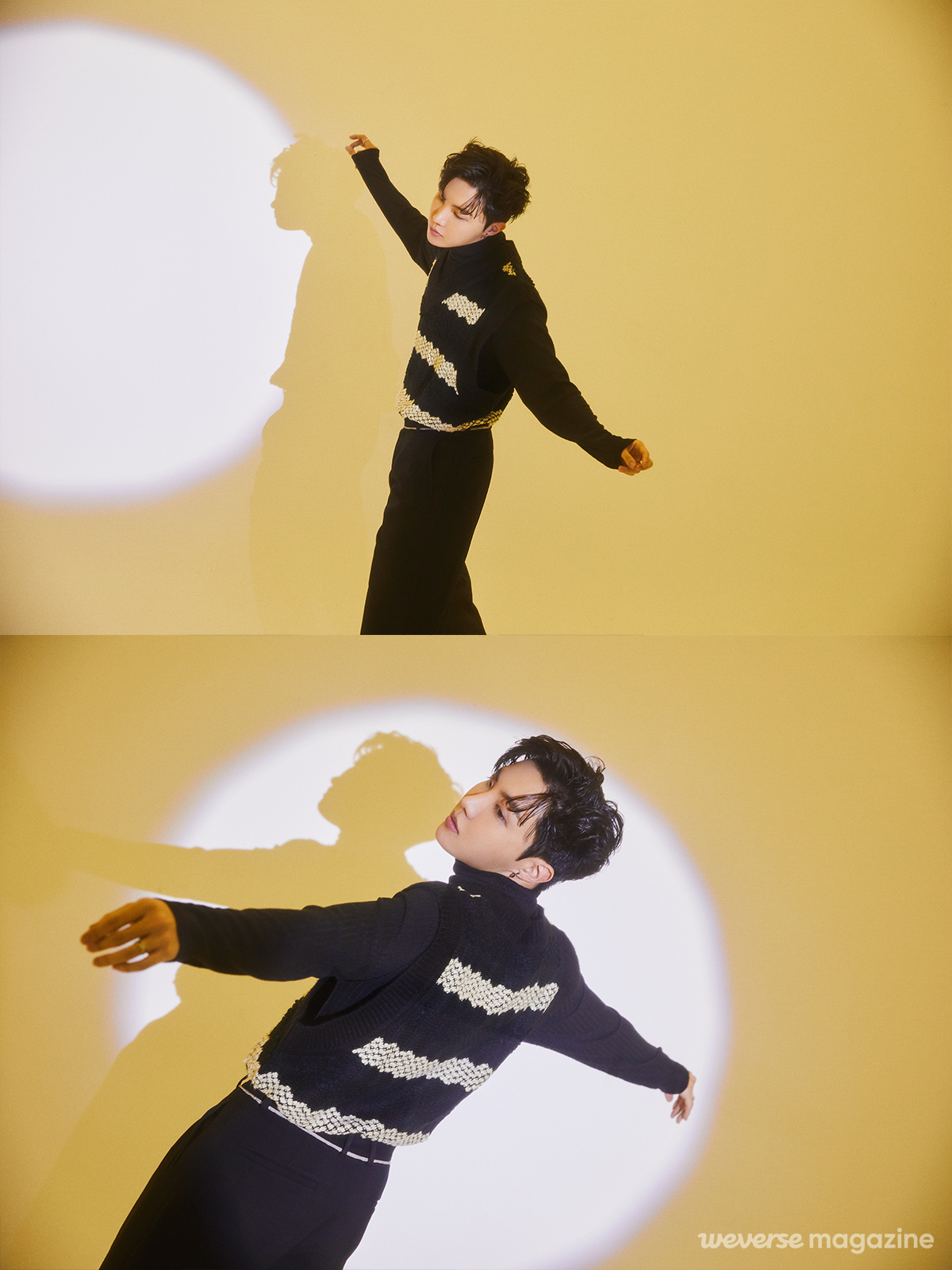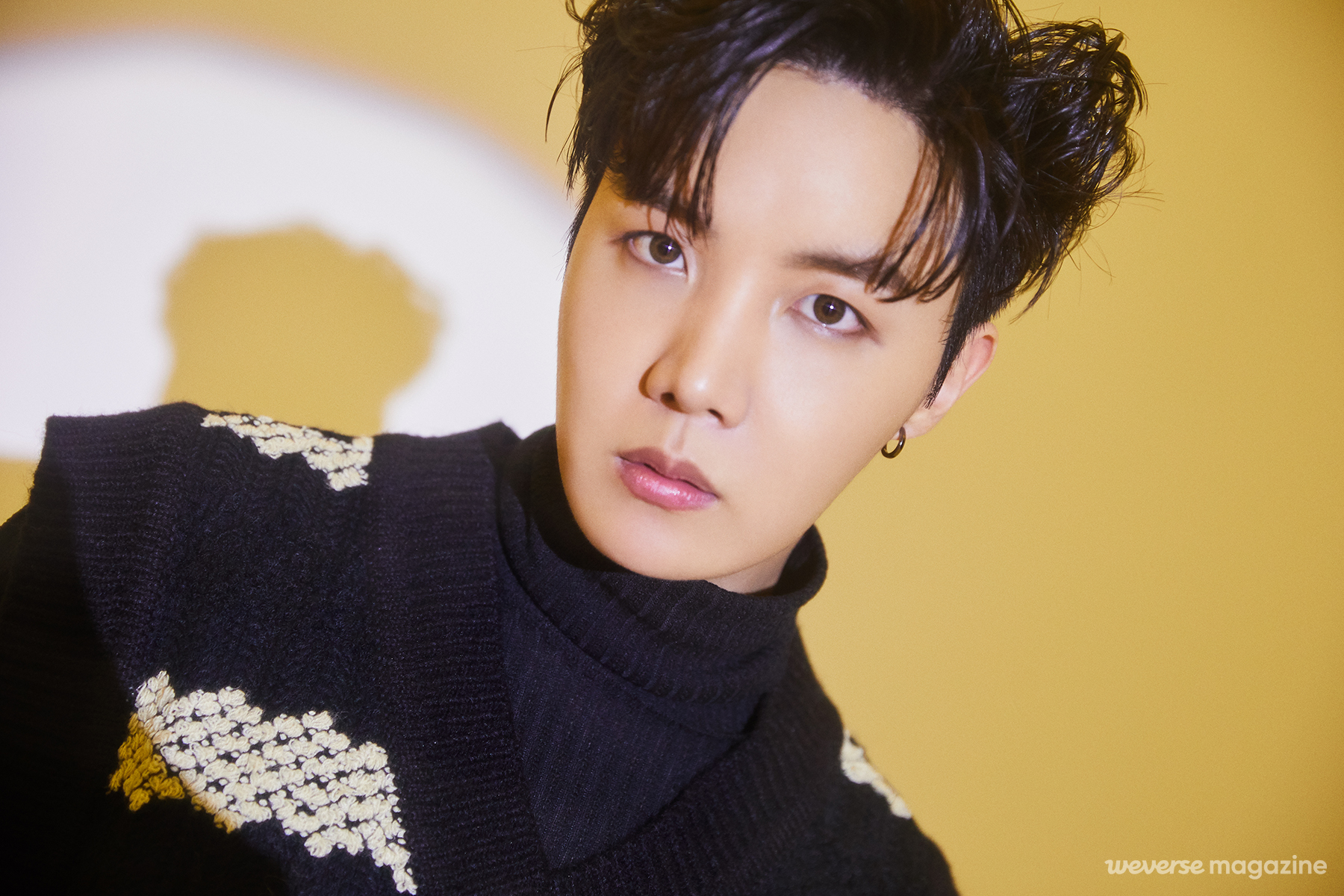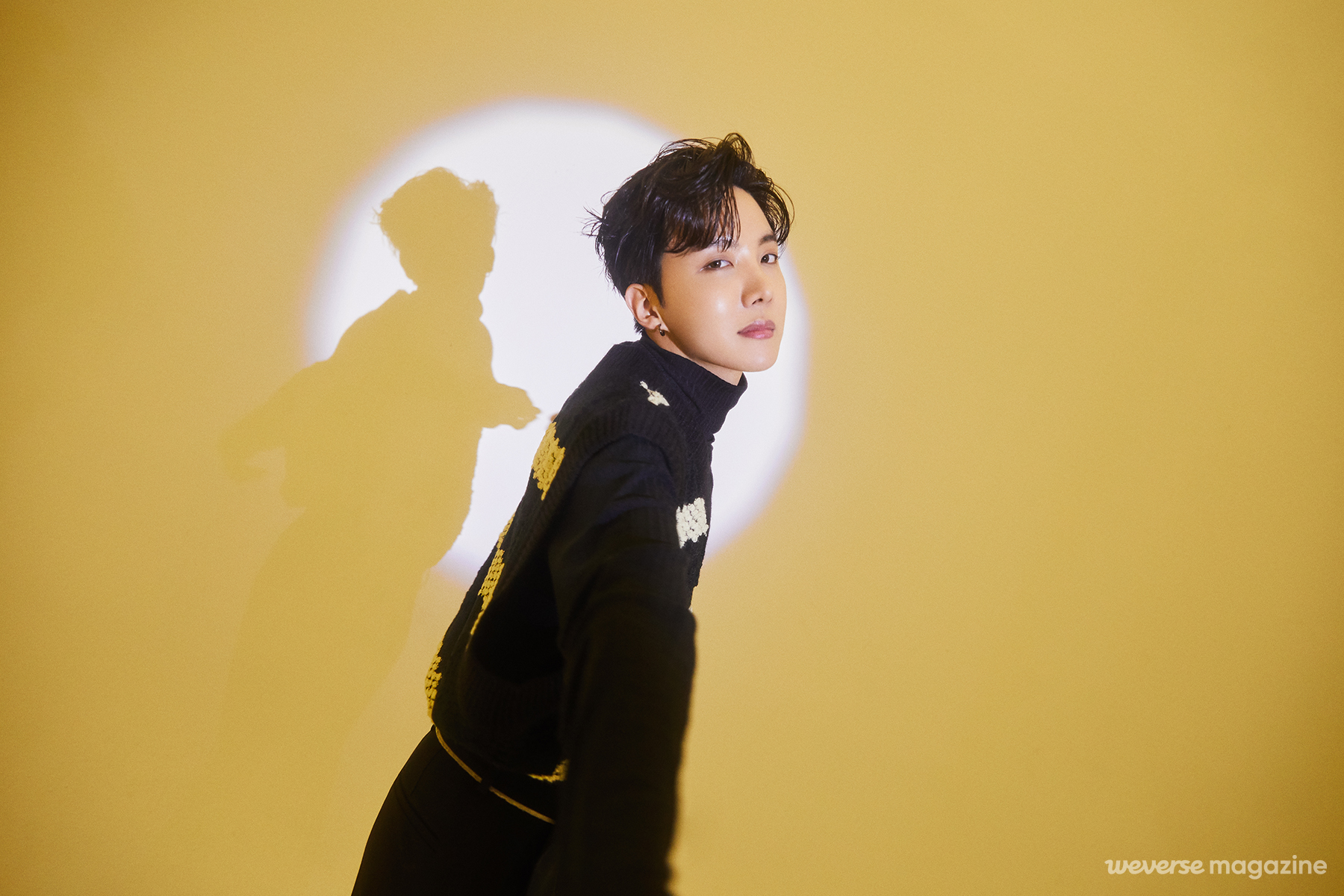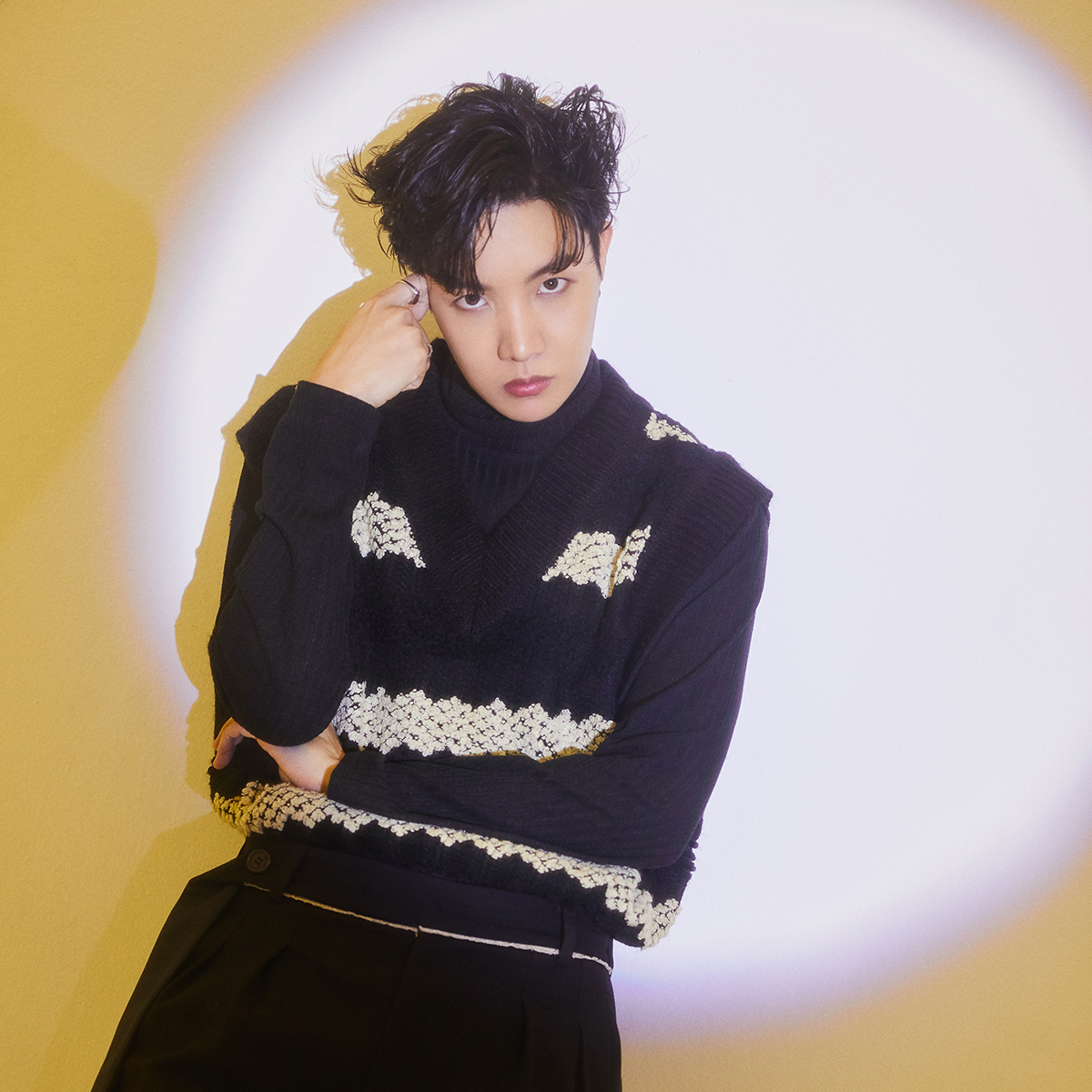
A whole lot happened this year.
j-hope: Like I said in another interview, it’s been a roller coaster of a year. It started out with our performance at the Grammys, which was really, really, great, and then Map of the Soul: 7 came out, which was great, too, and then it plummeted. With COVID-19 happening, I did a lot of thinking, did some studying, then everyone met “Dynamite” and we had some great results. And the ride repeated. Roller coasters are scary, but you keep thinking about them even after you get off. That’s how I felt about this year: it was scary, but memorable.
One of those memorable things must be how “Dynamite” topped the Billboard Hot 100 but you never had a chance to actually go to the U.S.
j-hope: So when we got first place, we couldn’t even check the charts. We were asleep. We checked when we woke up, and there we were, at the top. But then we went straight to work. (laughs) We had to film something here in Korea. It was hard to enjoy ourselves, the whole situation being what it was, but it was all right because we could still enjoy it together.
You must have had a lot on your mind, making BE during this kind of year.
j-hope: I tend to think of BTS albums as being a reflection of the whole team, but this time I thought of it as putting in the stories I wanted to tell, making it my music and infusing myself into the new album while still being a BTS album. It turned out to be right at home with BTS’s color, and the whole team’s energy led to an even bigger synergy.
What made you think to go in that direction?
j-hope: We started this album off by getting together and asking what kind of story we wanted to tell. The end result of that conversation was, “Well, hey, we still have to live with this situation; we can’t give up.” And from there, “Life Goes On” was born, and then we got to work on the stories we each wanted to tell. I think it sounds more raw, since we tried to capture the emotions we felt living through the pandemic.
j-hope: None of us made any kind of plan. We’d listen to a track and someone would ask, “Hey, anybody wanna give this a try?” and someone else would say, “Me! I’ll do it.” We just did it that way. There were clashes, too. When each person starts to speak louder, it’s hard to find a common ground. But we’ve always been good at communicating with one another, and we know when to back down or be gracious, so everything went smoothly including planning for the unit songs.
How did each of you choose your songs? You put “Dis-ease” on the album.
j-hope: There’s one song where we were working in the studio and someone said, “That track wasn’t very good, was it? Jung Kook’s one before was better” and we’d switch on the spot. The song would be done recording and we talked to the label and ended up switching it out. We listened to it all together and said, “What about this?” And that’s how we decided. So then “Life Goes On” was done, and I wasn’t sure if “Dis-ease” would be on the album. We gave the seven songs from each member to Jimin, who was project manager, and he suggested we listen to them first and then get feedback from people inside the company. I think it was one of the stories each member could feel was his own.”
Where did you get the idea for the theme of “Dis-ease”?
j-hope: First, I wanted to get into the mindset that this song is a sickness. When I make a song, I work on the chorus first, and then move onto the first verse. When I had only finished the chorus the song felt upbeat, but I thought the overall theme shouldn’t be too playful. That wouldn’t reflect how I felt. But while the theme of “Dis-ease” itself isn’t very light, when it fuses with the beat, it feels as if the song is trying to get over itself and stay positive. So I threw some scratching into the chorus and put in some “bbyap bbyap bbayp” and then started to think, “Aha! I’d better call this song ‘Dis-ease.’ ”
I didn’t expect you to write a song portraying your love–hate relationship with your work as a disease. A lot of people would expect you to have a positive, hopeful attitude, given your name.
j-hope: I was too busy to ever give much thought about the work itself. But, as you know, that suddenly changed, and there was a lot we could no longer do. When I was working, I’d say, “Ugh, I need a break,” but then we took time off and the words, “Ugh, I want to work,” jumped out of my mouth! That’s what made me think more closely: “Why is this bothering me? I have a chance to rest—just take it. Why do I feel like I need to work under these circumstances? Is this an occupational disease?” I felt like this was a part of me that I could express at this point in time.
j-hope: Out of habit, I would say, “I’m okay; I have hope,” and keep working, but I think I was just avoiding my work-related problems rather than facing them head on. The nice thing about music is that I can say what’s on my mind, even feeling of sadness or depression, in beautiful ways. I don’t usually express those feelings but this time I wanted to try.
It sounds like you have lots of different thoughts about work.
j-hope: With my work? Well, actually, I’m not sure. Work is kind of an ugly duckling. Work gives me good energy but there’s energy you get from resting. But someone like me feels alive when they’re working, so I need to keep moving and keep doing. I feel anxious when I stop and content when I go. Every once in a while I don’t want to work, but I can’t not work.
You’re saying you and work go well together?
j-hope: Exactly. It’s easier just to think simple. If you think too hard, that’s when things get difficult. Because I’m me, I can’t just keep it simple all the time, but I’m trying my hardest to do my best.
Thinking simple isn’t always so simple.
j-hope: Yeah. Maybe it’s because I don’t have many problems to deal with. I feel uncertainty because of that. Uncertain about how my identity will be affected if I do encounter some great hardship.
j-hope: That is also true. (laughs) But the team wouldn’t have kept going if it’d just been me cheering ourselves on. We’re possible because we all think the same way. I wonder if we would’ve been able to come this far if it was just me saying, “Let’s go, guys!” That’s why I’m even more thankful to the other members.
What do those emotional changes affect your music?
j-hope: I didn’t want to make an overly cheery song this time. I thought it would be best to do some softer songs about the way I was feeling this whole time, so I chose “Dis-ease” as well as “Fly to My Room.” The other members also thought, “Yeah, we’ve done a lot of bright songs, so it should be fine if we try it this way, too.” “Blue & Grey” is like that, too. I love that song.
You have a completely different voice when you rap on “Blue & Grey.” Did your rap style also change, along with your emotions?
j-hope: I wanted “Blue & Grey” to sound like I was talking, actually. The tone and feel of my voice changes a lot depending on how I vocalize my rap. I noticed that a lot this time. Namjoon actually helped me a ton. His part was after mine, so I turned to him and said, “Maybe it would sound better if I did it like this,” and tried it out. Then I used his advice and found the right sound.
How does it feel moving away from your normal style?
j-hope: It’s really refreshing. I thought it wouldn’t work but I think it did after all. And I always thought this was a feel that I wanted to give it a try. For me, BE is sort of like the first step down an unfamiliar path, so there were parts that were challenging, and also parts that were a welcome change.
j-hope: I made sure not to overthink anything this time. It ended up sounding natural because I just matched the rhythm of the words as they left my mouth. And it was refreshing because I haven’t done a long verse like in “Dis-ease” in forever. When we rap, there tend to be four or eight-ish lines; I thought I’d try and pack in a verse with sixteen. It also helped because the lyrics came out before many of the other things for this song.
The music makes “Dis-ease” sound upbeat, but then there’s a surprising message: “To be honest, I have this problem.” It’s like you were holding yourself back from crossing a line.
j-hope: It was something like that. Shouldn't we stay on this line? Maybe that’s a disease too (laughs). I thought if j-hope leaned too much to one side people might think that’s strange, too. That’s why I tried to stick to my standards, but since I’m also human I also expressed emotions I couldn’t articulate into music.
You don’t want to try and cross that line?
j-hope: I’ve thought about it, obviously. I want to, but in my life itself and in my mind, I always think if there’s a line, it shouldn’t be crossed. But I’m becoming more generous to myself about crossing lines when it comes to music.
So you haven’t crossed yet, but right now you want to say, “I have something else,” and go further.
j-hope: Yes. This is maybe a time when I really need to. I’ve been lucky because I met great people, had success and reached where I am now. Now that I’m here, I always want to try new things myself and keep growing. That’s why I’m working hard and thinking about what kind of music I should make.
j-hope: It all depends on how you look at it. Say there’s some kind of food. You might feel lonely while eating it by yourself, but if you forget about your loneliness for a minute and think, “There is no difference in food I would be eating out (with other people) anyway,” then it’s just like eating out. So even though I was stuck feeling lonely at home, I started to think of it as another trip instead. I thought of my room as my world, and delivery food as a three-star hotel meal. As you can tell from the title, I worked on that song by thinking about the way I endured this year so far.
And why did you decide to “change the way you think?”
j-hope: Because I get a lot of love. Because I’m in this position and in this place, there’s things I have to deal with, and I should do things and think things I am able to bear. I thought about that a lot and accepted it. So I thought about what I could do during these hard times, and how I could help out my friends, my team. I think I’m still going through that process, too, so everything’s an “-ing”, because I might need to know what to do later about what I can do, even if I don’t quite know it yet.
What effect does being surrounded by so much love have on you?
j-hope: It’s amazing to be loved by even one person. Even just one, single love is beautiful, but we’re getting love from all over the world. And I know this isn’t something to take for granted. I’m so incredibly thankful that sometimes I feel overwhelmed just thinking, ‘Wow, how can I ever return this much love?’ I want to express that in any way possible, every moment I can, because I’m so honored to be so loved that I can’t begin to put it into words.
A little while ago, in an interview with Rolling Stone India, you said that, when you were young, you equated debuting with success. What does success mean to you now, now that you’ve had success after success?
j-hope: Success … It’s a simple idea, but it can weigh on you. In all aspects of life, I think success means being satisfied with what you’re able to do.When you lose faith in your work and it starts becoming a chore, that’s when it starts to get depressing.
There are inevitably times when you can’t enjoy it.
j-hope: It’s just, you know, it’s really simple. If you can’t do it now, you can always do it later. Do that, and you can put your mind at ease. And I think that’s the secret to living a long, happy life. Anything you can’t do in your 20s, you can just do in your 40s. Of course, there’s going to be stuff you should do now while you’re still (laughs) energetic. But if that’s the position you’re in right now, you just have to ride it out. Try again later if you can’t enjoy yourself now. You’ll probably feel different in the future anyway. Yeah, that was pretty much the key to my self-preservation.
j-hope: From the group, it’s very clear what that is. It’s our fans. ARMY. We had to pull through, for the fans. At any time of any day, the fans come first. I keep thinking about how painful it would be for the fans if we just gloss over something or feel like giving up just because we’re having a hard time. I was 20 when we made our debut. I didn’t know much about having a social life, but the messages our fans sent were a big comfort and gave us hope. I learned a lot just by reading fan letters and understanding the kind of thoughts they had. Fans and artists really are one and the same.
That makes me think of a line from “Life Goes On”: “People say the world has changed but thankfully between you and me, nothing has changed.”
j-hope: Yes, right. I thought that line expressed the feeling really well as soon as I first heard it. Yoongi wrote that. He is really good. (laughs) I think that describes our relationship with our fans.
Unauthorized reproduction and distribution prohibited.
- BTS Other Cuts2020.11.29
